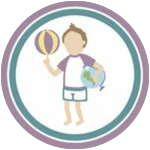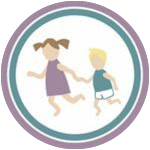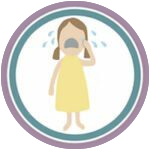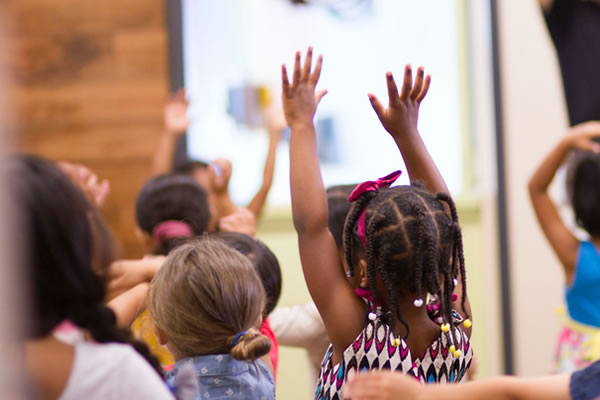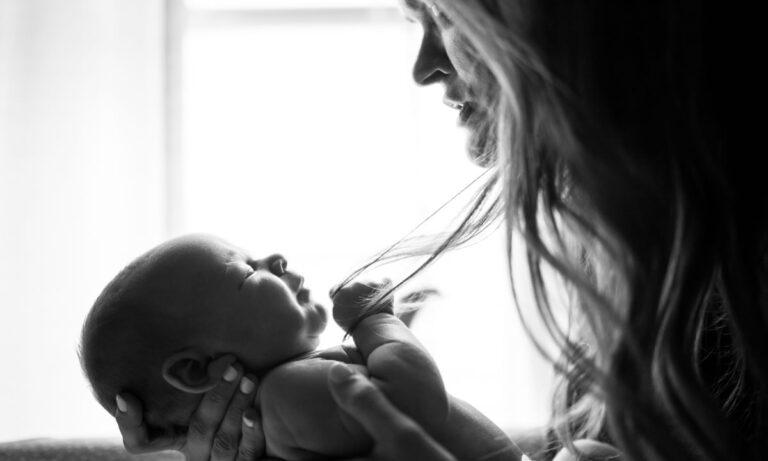Q: My nine-year-old son is not reading and is not even interested in learning to read. He recognizes letters and can identify some words but has no passion for mastering the skill. We read to him a lot, but are worried about this delay and especially about his lack of interest. What do you suggest?
A: I have always been perplexed by the rush to get children to read. Why dictate a certain age for reading? Why not trust the child to acquire what he needs when he is ready? What if later is better? Could reading bring to an end some of the incredible abilities we marvel at in young children; their magical memory, acute hearing, imagination, vivid experiences, and exuberant artistic expressions?
Imagine raising a non-reading human being: What contribution would he make with a different brain wiring that is free of dependency on the written word? (We could write what he teaches us!) What are we missing by interrupting the child’s ways of perceiving the world, with our cerebral focus on letters? Indeed, it would be amazing if we could prevent even one child from learning to read. I have no doubt that such a person, living in modern society, will become knowing and aware in ways we don’t know possible and come up with ideas no reading human could conceive of.
Obviously, reading is also magical and opens doors for the mind and for the imagination. But, what’s the rush? For many children, later is better. The advantages of learning to read at a later age are so many. I would love to see more children who don’t rush to read before they maximized their brain potential when still free of this crutch. And yet, there is no need to either rush or halt children’s learning. We can trust each child to unfold as flowers do: right on time.
School-age dictatorship
The anxiety over a child’s reading is the result of believing conventional thoughts that are rooted in school concepts and in the need to control and shape children. School is about control of timing and methods. It teaches everything academic and hardly anything of the imagination, spirit, music, art, dance, theater, spirituality, or dealing with emotions… We raise people who can build colorless and harsh-looking cities made of concrete; people who know the history of wars (killings) and are intimately familiar with computers, but have no idea how to feel, sing, relate, give, be a parent, dance, meditate, love, invent, lead, etc. When we keep a child out of school, we should protect him also from these school concepts.
When you meet adults who read, you will find no difference between the ones who read at four and those who mastered reading at fourteen.
Who would you be without your wish that your son should read now? How would you feel, when free of expectations and timetables dictated by people who don’t even know your precious child? How would it be if you could cherish every moment of your child’s reading-free perspective on life?
The Child’s Learning Unfolds Right On Time
The poet H. N. Bilalik (1873-1934, Russia) recalls his failing attempts to read at school. His teachers kept pointing to letters, testing his knowledge, but all he saw were pictures of his own imagination. Each letter looked to him like something he has seen in real life. He didn’t see “letters” but drawings and could not shift his mind to see anything else. When he was asked, “What is this letter?” he insisted repeatedly, “A person carrying two buckets,” or whatever the image he saw. A few years later, this very intelligent boy would have learned to read with ease and within a very short time.
Only your son knows his own optimal time for learning to read. Your job is to protect his connection to himself so he can follow his inner guide. What distracts a child from optimal development are expectations, praise or other hinted coercions which pull him away from trusting himself. Expose and nurture but don’t impose.
Dyslexia and other consequences of premature reading
There are a few brain spatial, physical, and emotional components that must be ready for reading. If the eyes are not ready and the child is coerced into reading, he may end up with unnecessary glasses. His visual effort, combined with his anxiety to please us causes him to see blurry. Then we take him to the optometrist where he finds himself tested again. He sees the chart blurry and ends up with glasses that deteriorate his vision further.
Learning to read before grasping direction or order can cause harm as well. For a child, a change of direction does not change the meaning. A dog is a dog facing either way. His toys are the same no matter in what order they are displayed. He sees things in the correct order and direction. He does not walk through walls or take the next toy to the one he wants. Only, the order and direction have no meaning to him; things don’t change what they are by their location or the way they face. When a child learns to read before his brain can grasp this distinction (especially if the eyes aren’t ready either,) he may develop what we label dyslexia.
As long as a child’s mind is focused on sensations, large movements, pictures, etc., reading may interrupt his inner process. An artistic or very physical or sensual child may utilize the senses in ways that contradict the frozen state of the written text. In addition, if a child is jealous of a younger sibling, needs more time with mommy, and is not ready to be quietly by himself is not ready to read.
When coerced into reading, a child will interrupt some of his magical direction and switch to the kind of brain activity that reading requires. In other words, he might “bend himself out of shape” mentally, emotionally, and possibly even physically, in order to live up to our anxious expectations.
There are children who are ready to read at a young age. One of my children taught himself to read through music, at age four. He was a born intellectual. He studied as a toddler. He was hardly interested in climbing, not even much playground, hardly any amusement park (his younger brother was on the rides while he waited with me.) I kept reading to him even though he could read English and music. My youngest son was a later reader and to this day, I do not know when and how he taught himself to read. I was not involved.
When we extract the child from his world of perception to impose our own, something gets lost. The greatest loss is the child’s sense that he can rely on himself to know when, how and what to learn and to do with himself.
The Power of Inventing one’s own Method
When your son will learn to read in his own way and time, he will not only learn to read; he will invent a learning method. The process of inventing a system to figure something out is by far more important than what is being learned.
When we teach a child to read, not only we may miss the timing but we prevent him from inventing his own method; we thwart a giant brain development and the building block of confidence and self-reliance. In addition, we make learning to read more difficult when the method is often not the one that fits the child’s way of learning.
A child who knows from experience, “I can learn anything on my own,” is poised to be able to study with confidence and ease for the rest of his life. His mind has no imprint of anxiety about learning. Once the formative years are over, the self-reliant learner has an easy time following instructions and discerning what is useful to him. His connection to himself as the source is alive.
No Expectations
Enjoy your son’s amazing ways of being. Avoid showing any interest in seeing him read or even be interested in reading. Tell him you were wrong, and that its better if he doesn’t read soon. Relieve him from any likely sense of expectation. Tell him how much you love to read to him. Then, enjoy as his magical years unfold.
When your child is driven from inside to learn to read, you won’t be able to stop him. In fact, my silly idea of raising a child who won’t learn to read is not possible in our society. We cannot stop children from learning to speak, read, or do any of the things we all do. We can only watch in dismay.
©Copyright Naomi Aldort
Do you want more information about HOMESCHOOLING? Look at the indispensable set of 7 CDs Trusting Our Children, Trusting Ourselves, which covers practically all major parenting and self-directed learning issues in one amazing package.




